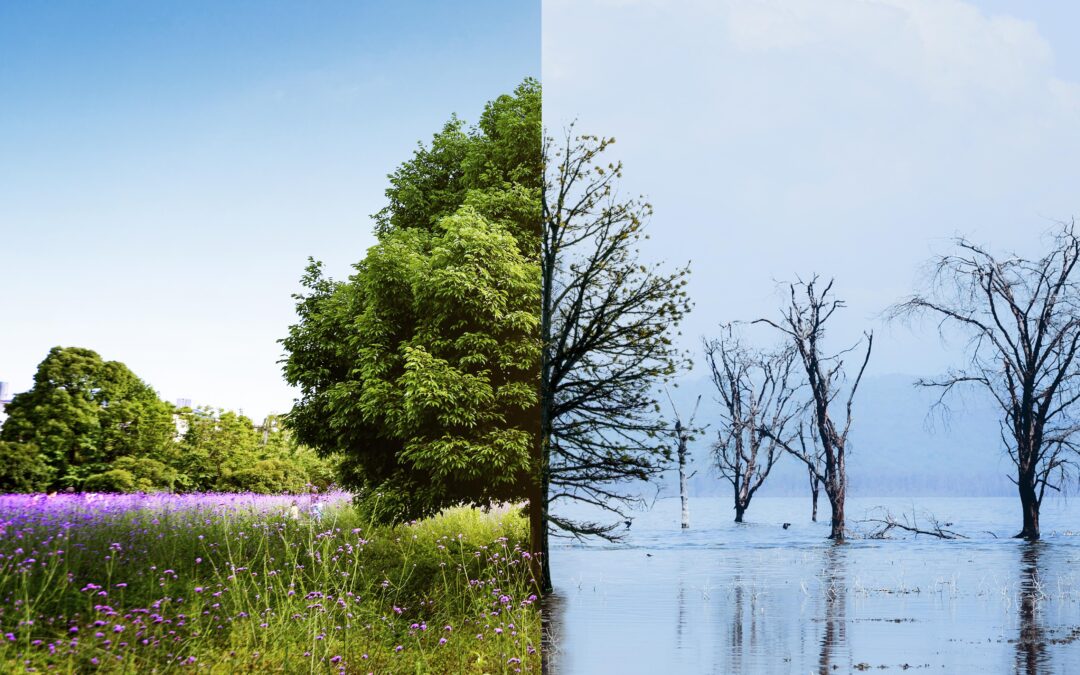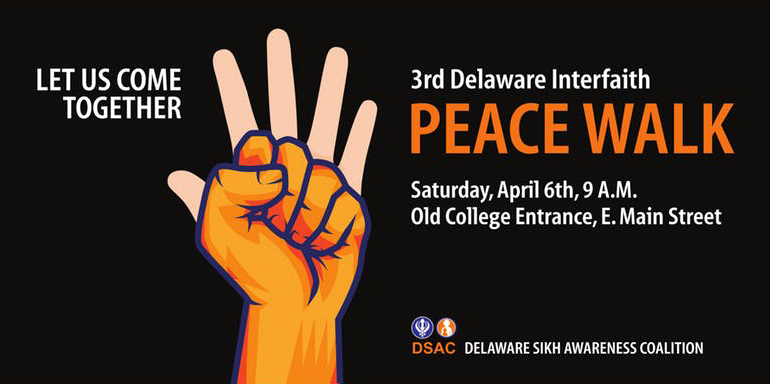When people come to comprehend what Archbishop Desmond Tutu said — “Climate change is a moral challenge, not simply an economic or technological problem” — nature’s stewardship becomes a calling.”
“The world is going up in flames — shower it with Your Mercy, and save it! Save it, and deliver it, by whatever method it takes,” reads a shabad in Guru Granth Sahib, the Sikh scripture. Followers of Sikhism — the world’s fifth-largest independent religion — recite it in disquieting times.
Over the past few years, the pandemic has not been the only reason Sikh congregations — who believe that “Air is the Guru, Water is the Father, and Earth is the Great Mother of all” — sing it devotionally at their gurdwara. The Earth’s rising temperature has also given deeper meaning to Sikhs’ Sunday prayers.
Among the world’s faithful, Sikhs are not alone in their concerns about climate. “The skyrocketing number of books on ecotheologies show that commitment to climate action has entered the mainstream of most religions,” say Tobias Müller and Esra Özyürek of the Netherlands’ University of Groningen. “The research that we’ve done suggests that, by leveraging their massive influence, these groups can help the world take significant steps towards averting climate catastrophe.”
Climate-dedicated organizations or initiatives mirror nearly every faith’s commitment to preempt climate Armageddon. Among the Abrahamic religions, for instance, Dayenu is “a Jewish call to climate action.” The World Council of Churches has “care for creation and justice” at its center, and Muslims have an “Islamic Declaration on Global Climate Change.”
Similar dedication amongst religions born in the Indian subcontinent is reflected by the “Hindu Declaration on Climate Change,” “The Time to Act Is Now: A Buddhist Declaration on Climate Change,” “EcoSikh” and the “Jain Declaration on the Climate Crisis.”
NASA’s scientists have calculated that the average global temperature on Earth has increased by at least 1.1 degrees Celsius (1.9 degrees Fahrenheit) since 1880 and report that the rise has accelerated since 1975, a threatening pace that signals a “code red for humanity.”
The role of religious communities in confronting this upward march to 1.5 degrees Celsius (2.7 degrees Fahrenheit) is crucial.
When people come to comprehend what Archbishop Desmond Tutu said — “Climate change is a moral challenge, not simply an economic or technological problem” — nature’s stewardship becomes a calling.
In 1970s India, the Chipko (hugging) movement ended deforestation in Uttarakhand. Sunderlal Bahuguna, who coined the “ecology is the permanent economy” mantra, was the movement’s most well-known face. He motivated poor villagers, primarily illiterate women with subsistence livelihoods, to confront tree felling to save their hearths, homes and the environment using Gandhian techniques. They took on a solid government forestry department that was colluding with big contractors — and won.
The movement earned its “Chipko” name because villagers hugged and chained themselves to trees to stop loggers from cutting them down. Hugging a tree meant “our bodies before our trees.”
When religious communities pool their resources for a shared cause, their strength grows synergistically. The Rev. Canon Sally Bingham perhaps had this in mind when she founded Interfaith Power & Light (IPL) — “a religious response to global warming” — in 1993. Today, the organization has 40 state chapters and 22,000 congregations. Delaware Interfaith Power & Light (DeIPL) is its affiliate in President Joe Biden’s home state.
The entire IPL community, especially us in Delaware, rejoiced when one of President Biden’s first actions was to reenroll the U.S. in the Paris Agreement. Unfortunately, we have been equally disappointed to see how fossil fuel-funded legislators have repeatedly defeated his ambitious environmental agenda on Capitol Hill.
Guthrie Graves-Fitzsimmons and Maggie Siddiqi of the Center for American Progress wrote, “Faith-based climate activism is deeply rooted at the local level, particularly in communities that bear direct witness to the harms that the climate crisis inflicts on the environment in their immediate surroundings.”
Delaware is a sinking coastal state that is also the lowest-lying in the country. Consequently, the sea level is rising higher and faster. DeIPL and other environmental groups are working together to create awareness about the state’s precarious situation and lobby the government in Dover to declare a climate emergency that reflects “a statewide commitment to a just transition toward a decarbonized economy that invests in and ensures clean energy and quality jobs and reverses the climate crisis.”
President Biden’s party in the First State has a government trifecta, with supermajorities in both chambers and a Democratic governor. While the president’s endeavors in Washington, D.C., continue, he should nudge his colleagues in Dover to turn his home state into an example of environmental excellence he can showcase nationally and internationally.
Perhaps then, we can realize Guru Granth Sahib’s observation: “Air, water, earth and sky — the Lord has made these His home and temple.”
—————
This column was published online by https://baytobaynews.com/ on April 17, 2022.



Recent Comments